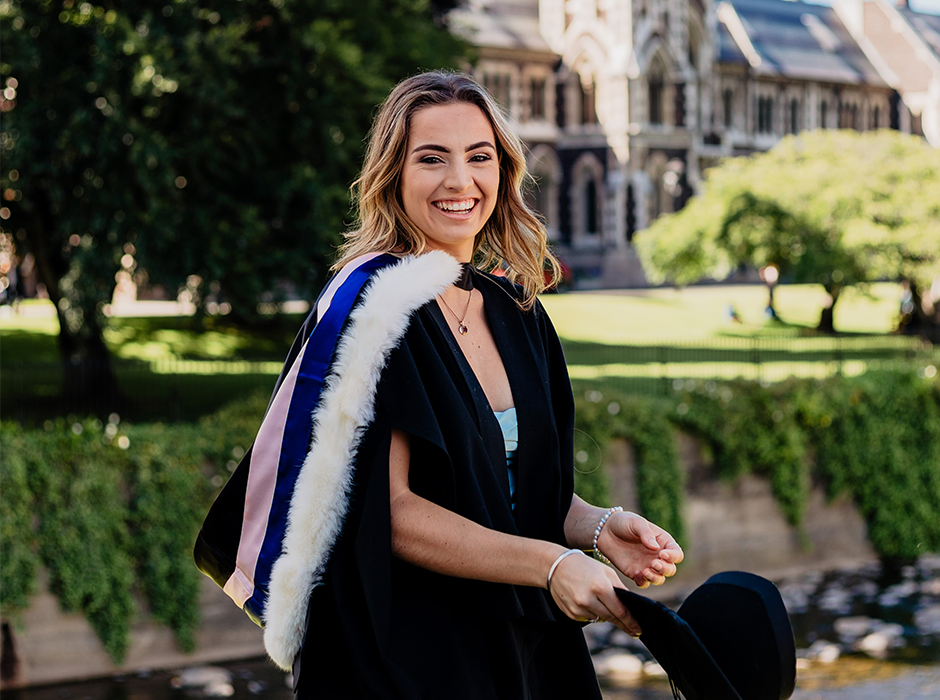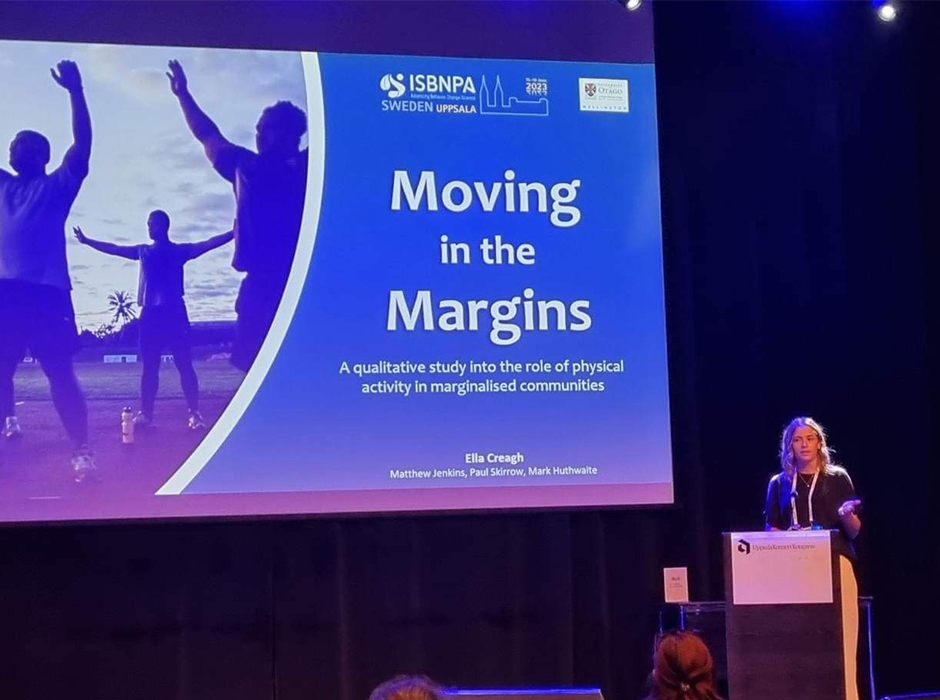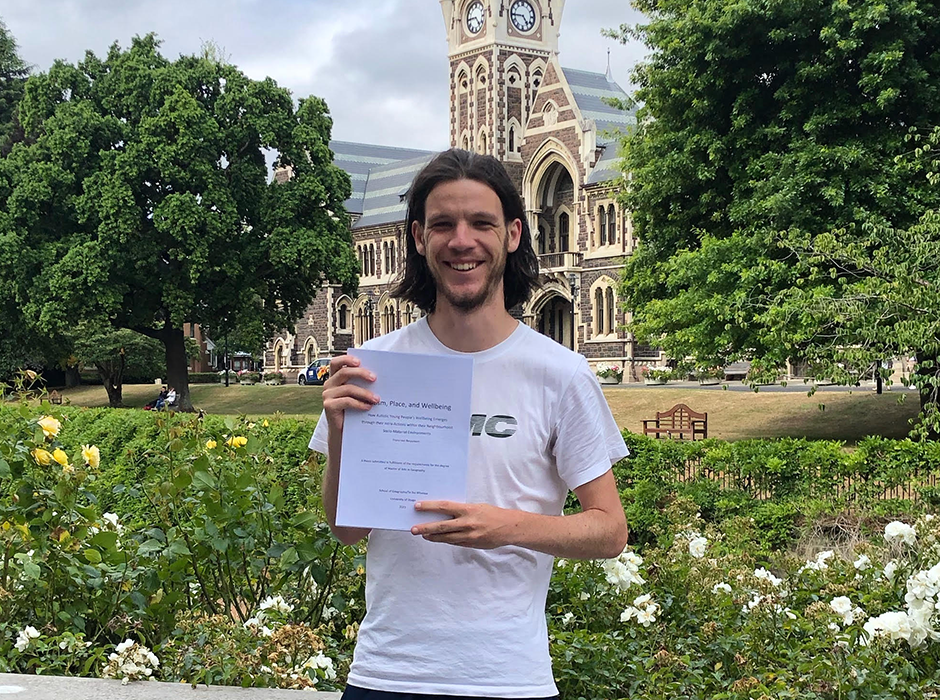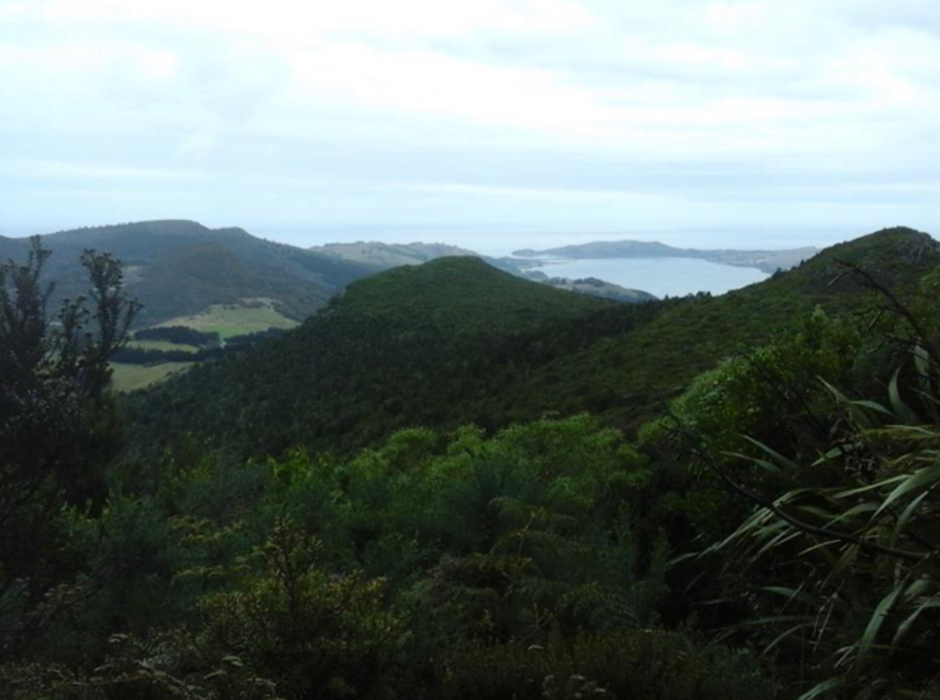
Otago graduate Ella Creagh’s research into physical exercise support for marginalised community members shows the positive impact physical activity can have on people’s wellbeing.
The Richard Kammann Wellbeing Prize has been awarded to two Otago students this year – Ella Creagh for her research into physical exercise support for marginalised community members and Franz van Beusekom for his masters research into the impact the material and social world has on neurodivergent people.
The prize was founded in 1986 in memory of Associate Professor Richard Kammann who taught in the Department of Psychology at the University of Otago and whose research interests included the application of psychology to human happiness, well-being, and real-world behaviour.
A little support goes a long way
Otago graduate Ella Creagh was awarded the Richard Kammann Wellbeing Prize for her research into how physical exercise support can impact marginalised community members.
Ella, who graduated from Otago with a Bachelor of Arts and Science majoring in Psychology and Neuroscience in 2022, conducted the research as part of a Summer Studentship project in 2021-2022.
“The project was about exploring the impact of physical activity support – in the form of subsidies and equipment – on the subjective health and wellbeing of marginalised members of the Wellington Community,” Ella says.
“Wellington City Mission – a local charitable organisation – together with Wellington City Council, had been offering subsidised gym and pool memberships, free pool entry vouchers for children, and subsidised physical activity equipment. When I was applying for the different summer projects this one stuck out to me because I saw it as an opportunity to highlight how much of a difference a little support can make towards people’s wellbeing.”
As part of the project, and with support from her supervisors, Ella designed interview questions, recruited participants, conducted interviews and analysed the interview data.
“Participants shared with me how their physical, mental and social health had improved through being physically active, which aligned with the Māori model of health and wellbeing, Te Whare Tapa Whā, which takes a holistic perspective on what health and wellbeing is.”

Otago graduate Ella Creagh presents her findings on exercise support for marginalised community members at an academic conference.
The results were later published in the Journal of Sport and Exercise Science in 2023 and participants' stories have since been shared at two academic conferences.
“More importantly, the participants' stories were shared with the Wellington City Council and other City Missions to inspire further physical activity initiatives like this to develop.”
Their stories are a powerful reminder that the circumstances you find yourself in are not necessarily a product of choice but are influenced by many external factors, Ella says.
“This work was important to me because of the community members, who were so generous with their time and their stories. They opened up about very personal experiences of what it’s like to live in the margins of society and how life-changing the physical activity support was for them and their whānau. They were so grateful for the opportunities to be physically active, and I think their stories serve as a reminder for all of us not to take physical activity for granted.
“I'd like to thank all the participants for sharing their stories, the people at Wellington City Mission for their incredible mahi in the community, the University of Otago for the opportunity to do the Summer Studentship and my supervisors for all their support.”
Ella is currently completing a Master of Health Psychology at Victoria University Te Herenga Waka. Her thesis will focus on understanding and supporting physical activity and the holistic health and wellbeing of other communities, such as low-income young adults and people experiencing early psychosis.
Photos sparking conversations

Franz holding his completed master's thesis which his supervisor submitted on his behalf for the Richard Kammann Wellbeing Prize.
Research into the impact of the social and material world on neurodivergent people has won Franz van Beusekom the University of Otago Richard Kammann Wellbeing prize.
Franz, who graduated with a Master of Arts from the School of Geography last December, was awarded the prize earlier this year. He is currently tutoring in the School of Geography and working as a research assistant.
“My thesis was basically about how autistic young people’s wellbeing is impacted and affected by their relationship with their social and material environment,” Franz says.
He took a creative approach towards how he got information from his study recruits, all of whom are autistic. Franz gave each of them a camera for two weeks and asked them to photograph any spaces they encountered in their day-to-day life that impacted on their wellbeing.
At the end of the two weeks, he caught up with each of them to discuss their photos.
He feels part of what made that interview process work so well was that the interviewees were able to do their “thinking beforehand”.
“As a participant, you’re not kind of put on the spot of what to talk about.
“A lot of research has this thing where the researcher asks the questions, and the interviewee responds to them. This is reshaping that because [the interviewees] take the photos; that’s already shaping what we end up talking about.”
It was a “really enjoyable” process that he wants to learn from and take further into PhD research, he says.
Using photography helped people think about things in different ways than they might have “in a conventional interview setting”.
During his master’s research he came across the term ‘neurocosmopolitianism’ which he says is the blending of the idea of cosmopolitan and the broader concept of how people with different dispositions and neurotypes interact with physical spaces.

An image taken by one of Franz's study recruits.
“I want to expand in that direction, thinking about that term in particular, and how we as a society might work towards developing genuinely inclusive and neurocosmopolitan spaces in society.”
Franz plans on undertaking a PhD and hopes to expand on the method of interview, potentially bringing in more visual methods such as drawing, mapping or making art.
“These things could go really well with your kind of standard qualitative research interview methods because they provide an example, a picture of what’s going on, something that maybe can’t be said in words, but can be said in photography or drawings.”
Franz undertook his masters project following a conversation with his parents in 2020.
“They said that they’d considered getting me diagnosed when I was younger with autism. And that was surprising to me, I’d never thought about it before. It had never occurred to me that I might be autistic.”
He had conducted some geographic research around wellbeing during his undergraduate degree, and wanted to further explore that area, so melded these two ideas together to research what makes spaces more comfortable for neurodivergent people.
“But there are lots of other reasons that research like that needs to be done.”
Autistic people and other neuro minorities form a marginalised group in society whose wellbeing is not really considered often, Franz says.
“Conventional wellbeing research probably doesn’t touch on it very much.”
One way of dealing with the marginalisation is forming a body of research that discusses how and why the marginalisation occurs. Decision-makers and people in power can use the research to develop more inclusive policies and practices.
This is one of the more important reasons why this kind of research needs to be done, he says.
News he had won the Richard Kammann prize “came out of the blue”, he says. His supervisor, Associate Professor Christina Ergler, submitted his thesis as part of an application to be considered for the prize.
“It was really nice to have my work recognised, especially in a way that kind of indicates that what I was doing was on the right track and was a good piece of research.”
Kōrero by Internal Communications Advisers Laura Hewson and Koren Allpress